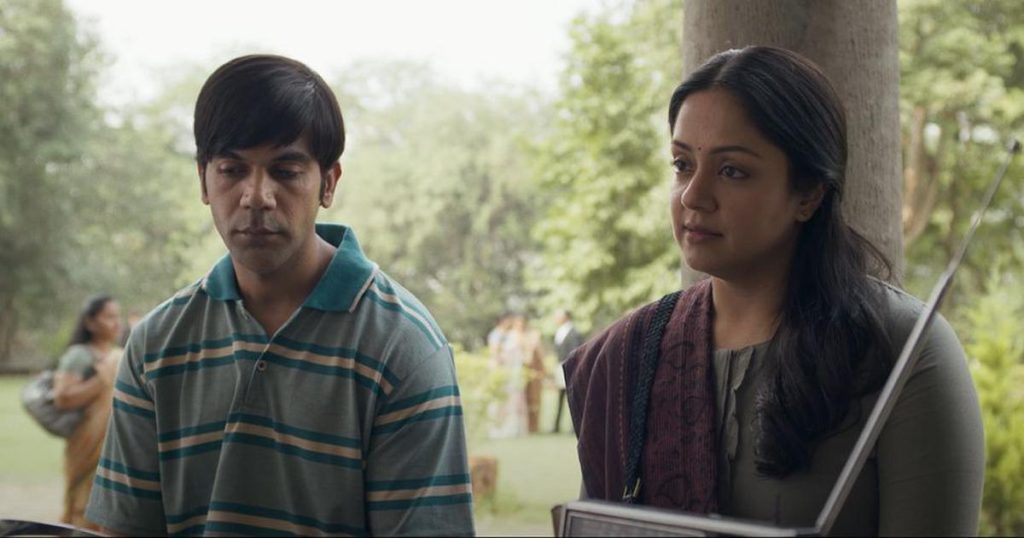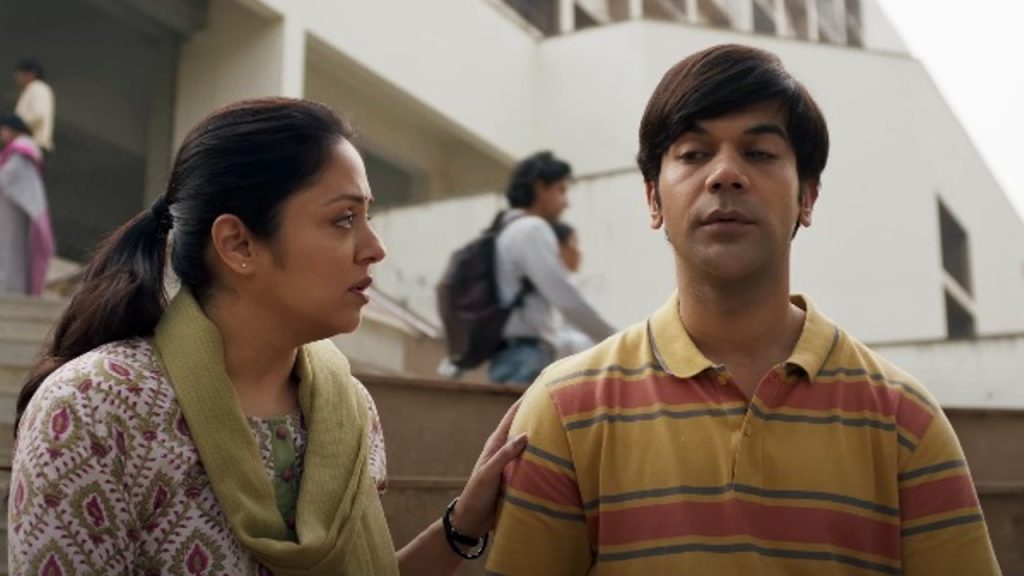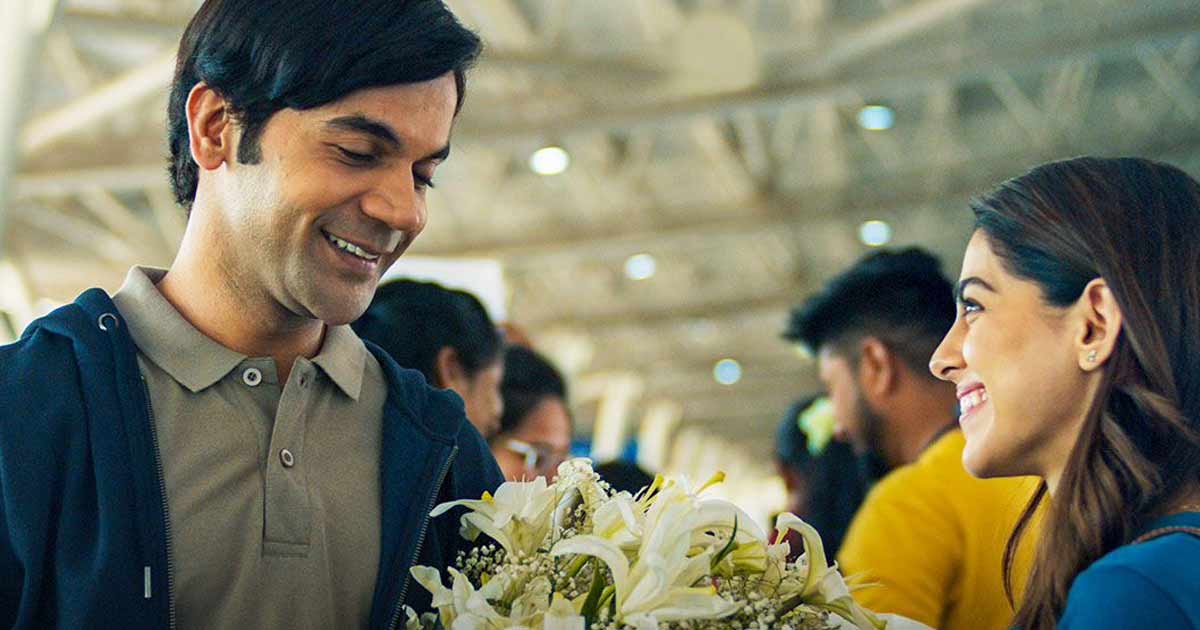Srikanth is a recent release directed by Tushar Hiranandani, based on the life of industrialist Srikanth Bolla, played by Rajkumar Rao. Released this month, the film is a life narrative focusing on the different ways in which disability is treated in contemporary society.
Originating from a humble background, Srikanth is named after the legendary cricketer; his father dreams that Sri will one day play for India like his namesake. However, on discovering that their son is born with congenital blindness, the parents make the tough decision to raise him, despite caveats issued by the people around them.
As Srikanth grows up, he faces a lot of ableist bullying and discrimination, however, he is determined to become the brightest student in his class. On being told that visually impaired students cannot pursue science in India, he goes to court to fight a case that would allow blind students to study in the science stream.
However, when IIT rejects him for his disability, Srikanth gets a degree from MIT and returns to India with a purpose and a dream- to give visually impaired people opportunities and to make Indian society a lot more inclusive. He starts Bollant Industries but after initial success, he loses his way and falls prey to diversions. It is how he pulls himself out of that situation that is interesting and inspiring.
The four pillars of our democracy and disability
The four pillars of Indian democracy treat Srikanth and his disability in different ways, showing what our broader societal perception of disability is. The people and the local communities show a range of different attitudes- ranging from trivialisation and dismissal, to discriminatory and oppressive. However, a few like “Devika teacher” Ravi and Swathi show immense love and support to Srikanth which empowers him.

As for the executive class, the politicians and administrative leaders, we see that while local netas like Reddy are out to exploit his disability for electoral gains, leaders like former President APJ Abdul Kalam support him through their motivational words and investments.
The politics of tokenism is condemned in the film- when Srikanth’s election campaign banners are read out to him by Reddy’s men, we see campaign lines like ‘I am blind but I am not a bad person,’ insinuating that blind people are incapable in the political arena. The tokenism is immediately called out by Srikanth who realises his mistake in considering a political collaboration with Reddy.
Srikanth, like every other person at the height of their success, wants more and starts harbouring an inflated ego which can prove dangerous for them in the long run. In this attempt to rise and rise, they often forget their principles and ethics and dismiss those who care about them. It is a human trait to feel this way.
When denied admission in the science stream despite his excellent marks, Srikanth goes to court to fight a case against the Board of Education. Here, we see how the judiciary reacts to people with disabilities. While the lawyers opposing him are ignorant of his skills and stick to insulting his dreams, the judge maintains an unbiased and impartial view, granting success to his case. In a heartfelt plea to the judge in court, “Devika teacher” says that despite justice itself being metaphorically blind, we still have full faith in the judiciary. She goes on to ask why, then, we don’t trust people with visual disabilities, delivering a hard-hitting statement that helps the case.
The media, in a scene in the second half where the success of Bollant Industries is being celebrated, attributes all of it to Srikanth’s partner Ravi. The framing of the journalist’s questions is discriminatory and insulting to Srikanth who feels unseen and erased from his success. This breeds feelings of animosity in him towards Ravi and one can attribute the dismissive attitude of the systems in society towards Srikanth to him temporarily going astray from his path of ‘doing good and being good.’
Breaking the infallibility myth
Srikanth tries to break the myth that disabled or marginalised people have to be hyper successful and infallible. By showing Srikanth’s ego and its dangers in the second half, the film humanises characters with disabilities. Srikanth, like every other person at the height of their success, wants more and starts harbouring an inflated ego which can prove dangerous for them in the long run. In this attempt to rise and rise, they often forget their principles and ethics and dismiss those who care about them. It is a human trait to feel this way.
However, in narratives with marginalised characters, we rarely see their humane errors, their hubris and hamartia. All we see are the inspiring stories of their success with them as ever-righteous figures sans any folly. On screen, it is essential to have characters that are well rounded and humane. Srikanth too, is a human who makes mistakes and learns from them. It was refreshing to see him making mistakes and moving on from them with new lessons.
Srikanth fights, because he cannot run
In a scene when his father confronts him asking why he did not run away when he was being beaten by bullies, Srikanth replies that he fights, because he can’t run owing to his visual disability. His ability to take challenges head on and overcome them is commendable- he takes on the education system, fights and wins. He then goes into the business and startup scene, fights for his place and succeeds. The film is all about the rise and rise of Srikanth Bolla, who never runs but fights.

However, as his teacher Devika puts it, since he has never learnt to run away, he has never learnt to back down. He has never learnt to step down and apologise; he can only fight. That is why when he runs into an altercation with his loved ones, he chooses his ego to get the better of him, refusing to apologise and back down, lest he be thought weak.
Instead, he fights the wrong fight until he realises he has strayed from his path. In a heartfelt scene, he apologises to the people he hurt, realising that he doesn’t always have to put up a fight, especially with people who care for him.
A story about the experiences of disabled people, Srikanth is worth a watch
The success of Srikanth does not lie in portraying the exponential rise of the eponymous protagonist, but in documenting his sheer humanity, by showcasing his flaws as well as his talents. Srikanth’s fallibility is what makes the film worth a watch. It is his portrayal as a flesh and bone character, as a person with a disability who is not shown as an angel but as a man with the same character attributes as everyone else, that makes Srikanth a heartwarming and hopeful film.
About the author(s)
Ananya Ray has completed her Masters in English from Jadavpur University, Kolkata, India. A published poet, intersectional activist and academic author, she has a keen interest in gender, politics and Postcolonialism.





